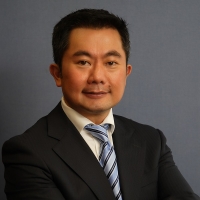
By Chris Dao
With a population of 97 million people, Vietnam ranked second behind China in the numbers of EB–5 petitioners in 2015 and 2016 worldwide. According to USCIS, Vietnamese filings increased by more than 127 percent to 289 I-526 petitions in 2015 and nearly 40 percent with 404 I-526 petitions in 2016. Along with the increase in these filings is the growth in the numbers of migration agents and regional centers. Statistically, according to USCIS, there were only a handful of agents and 71 regional centers in 2009, but there are now 25 agents — of which four are EB–5 specific — and 889 regional centers as of Nov. 5, 2018. Almost all of the investors know of the regional centers and immigration attorneys through these agents. Therefore, migration agents play a significant role in the EB–5 industry, not just in Vietnam but also in other popular EB–5 countries such as China, India and Brazil.
HOW DID THE REGIONAL CENTERS FIND AGENTS IN VIETNAM?
Beside the main market of China, many established regional centers already became interested and even invested in the potential Vietnam market back in 2009-2010. Some regional centers first identified the agents from the internet and then approached them by email or in person to discuss cooperation. Others were referred by their partners; for example, the regional centers were referred to the agents by the immigration attorneys and vice versa. However, not all regional centers have a successful relationship with the Vietnamese agents.
WHY ARE SOME REGIONAL CENTERS MORE SUCCESSFUL THAN OTHERS?
There are many cultural factors leading to a successful relationship between a regional center and a Vietnamese agent. Some established regional centers already began investing in a relationship with the agents as early as in 2009, and when the EB–5 market bloomed in 2012, those relationships had already became close. During 2009 to 2012, when the information on EB–5 and the choices of regional centers were still limited, the agents tended to work with those regional centers that came to them. Since 2013, more regional centers have come to Vietnam giving the agents more choices. Once the agents trust the regional centers, they usually work with these regional centers for a long time without changing unless some issues arise from the regional centers, such as problems with the projects, litigations, delay in processing by the attorneys, or denial by the USCIS. A regional center’s history, professionalism, support mechanism, sound projects, track record, and return of investment are also important factors leading to a successful relationship between the regional center and the Vietnamese agent. However, a successful agent has to market and convince the clients to trust and invest in the project – as the EB–5 market in Vietnam was extremely difficult in the beginning, and only those agents who were persistent, trustworthy and creative in establishing the clients’ trust would survive to become successful.
THE CULTURAL DIFFERENCES
Many cultural differences between the East and the West can lead to many differences in business philosophy between the regional centers and the Vietnamese agents. Americans tend to be direct and want to close the deal as soon as possible whereas Vietnamese agents would like to take their time to study the prospective partners before deciding whether or not to work with them. Americans work in the office while Vietnamese like to meet at home or in coffee shops. Americans use statistics to make their decisions whereas Vietnamese rely on their feelings toward the prospective partners (as they believe that they must first make friends before they make business.) The Vietnamese agents believe in trust building first. Some established agents show their customer-first philosophy by coming to the U.S. at their own expense to do their due diligence on the regional centers, the immigration attorneys and the EB–5 projects, and only after they feel comfortable with their findings will they introduce such projects to their clients.
THE ADVANTAGES AND CHALLENGES FOR REGIONAL CENTERS
Those regional centers that have been established for a long time with brand names and track records will have a big advantage over those that have been around for less than 5 years. In 2009, less than 10 EB–5 projects were marketed to a few agents. Now, there are more than 30 projects available to 25 agents big and small. The agents, and their client investors, want to work with regional centers that have a brand name, a good track record and sound projects. Those regional centers that have been around for less than 5 years tend to have difficulties in approaching the agents as the agents now have many more choices than in 2014. The main challenge for these new regional centers is their lack of track record and the ability to return the investment.
HOW DO THE REGIONAL CENTERS WIN OVER THE VIETNAMESE AGENTS
First, those new regional centers need to build a relationship and trust with the agents; this process cannot be in haste and must be in care, and if you can be the agents’ friend, you are the winner. Next, the regional centers need to make concise presentations with the understanding that the agents represent the clients; thus, the presentation cannot just talk about the project and how much funds they have raised, but it must address the feasibility of the project and return of investment mechanisms. The regional centers need to invite the agents to visit their headquarters, the past projects and the current projects. The regional centers also need to convince the agents that their client investors will get the I–829 and their investments back. Incentives to the agents and their client investors are also a big plus. The regional centers need to be honest with the agents as honesty is the best policy. Lastly, the regional centers need to create a win-win relationship: let make the investors’ success your success!
DISCLAIMER: The views expressed in this article are solely the views of the author and do not necessarily represent the views of the publisher, its employees. or its affiliates. The information found on this website is intended to be general information; it is not legal or financial advice. Specific legal or financial advice can only be given by a licensed professional with full knowledge of all the facts and circumstances of your particular situation. You should seek consultation with legal, immigration, and financial experts prior to participating in the EB-5 program Posting a question on this website does not create an attorney-client relationship. All questions you post will be available to the public; do not include confidential information in your question.







